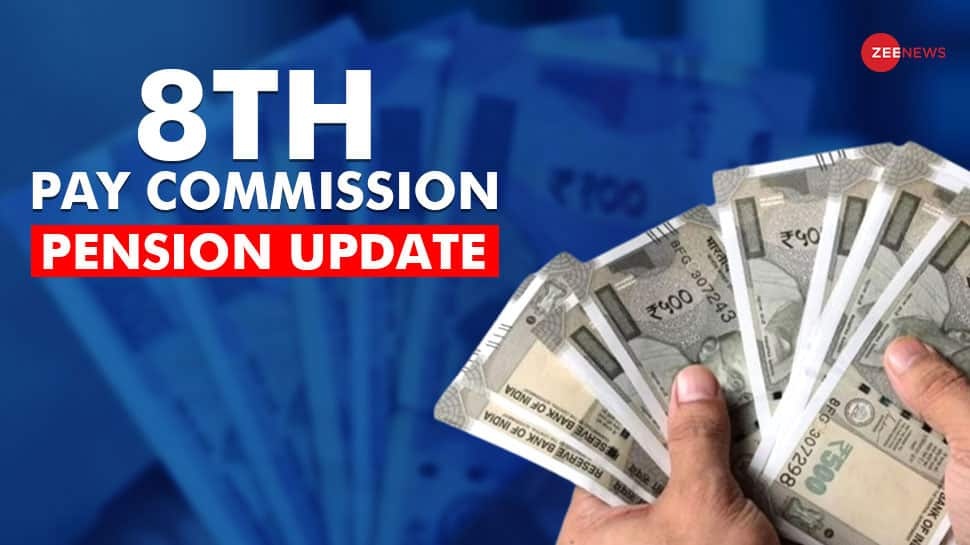
Tax Exemption and Pension Relief: A New Era for Government Pensioners
The recent passage of the revised Income Tax Bill 2025 in the Lok Sabha has sparked significant optimism among government pensioners and private investors. This landmark legislation offers comprehensive tax exemptions for commuted pensions, effectively removing the financial burden from recipients. The provision, effective from April 1, 2026, ensures that the entire amount of commuted pension is exempt from taxation, regardless of the recipient’s employment status, provided the pension is sourced from an approved fund. This shift marks a pivotal moment in the financial landscape for retirees, as it not only alleviates immediate tax liabilities but also opens the door for broader reforms in pension policies. The bill’s passage has reignited discussions about the potential reduction of the commuted pension restoration period, which could transition from 15 to 12 years, addressing long-standing concerns among central government employees.
Employee Demands for Shorter Commuted Pension Periods
Central government employees have been vocal in their demands for a shorter restoration period for commuted pensions, currently set at 15 years. Employee organizations argue that this period is outdated and fails to account for rising inflation and evolving economic conditions. They advocate for a reduction to 12 years, emphasizing that the 15-year rule is unjust given the financial pressures faced by retirees. The 34th meeting of the Standing Committee of Voluntary Agencies (SCOVA) recently highlighted this issue, with the Finance Department noting that the 8th Pay Commission will now handle the final decision on pension terms. This development has bolstered employee hopes, as the commission’s recommendations could lead to significant changes in pension restoration timelines. The push for reform underscores the need for a balanced approach that addresses both fiscal responsibility and employee welfare.
Historical Context and Pay Commission Reforms
The debate over commuted pension restoration is rooted in historical precedents, notably the 5th Pay Commission’s recommendations. In its 1981 report, the 5th Pay Commission proposed reducing the restoration period from 15 to 12 years, a suggestion that has remained unaddressed by the central government. The Confederation of Central Government Employees and Workers has repeatedly called for a review of these outdated rules, citing the need to align them with contemporary economic realities. The Supreme Court’s 1986 judgment in the Common Cause case further underscores the necessity for revisiting these regulations, as it highlighted the disparity between current parameters and the original framework. The establishment of the 8th Pay Commission represents a critical opportunity to reassess these policies, ensuring they meet the needs of modern retirees while maintaining fiscal sustainability.
Financial Implications and Employee Advocacy
The financial implications of a shorter commuted pension restoration period are substantial. Employees argue that a 12-year period would provide immediate relief, allowing retirees to manage their finances more effectively in the face of inflation and other economic challenges. This reduction would also align with the principles of fairness, as employees already bear the brunt of tax deductions during their working years. The National Council (Staff Side) Joint Consultative Machinery (NCJCM) has emphasized the urgency of this reform, advocating for the 8th Pay Commission to expedite its recommendations. By addressing these concerns, the government can foster a more equitable system that supports retirees while maintaining fiscal responsibility. The ongoing advocacy by employee organizations highlights the importance of balancing economic pressures with the welfare of public sector workers.
Path Forward for Pension Reforms
The path forward for pension reforms hinges on the recommendations of the 8th Pay Commission, which is set to take effect on January 1, 2026. The commission’s role in revising the terms and conditions of commuted pensions is crucial, as it will determine the feasibility of reducing the restoration period to 12 years. The Finance Department’s assertion that the commission will handle this issue marks a significant shift, as it transfers the decision-making authority from the SCOVA to the commission. This transition reflects the government’s recognition of the need for a structured approach to pension reforms. As the commission deliberates, the focus will remain on creating a balanced framework that addresses the financial needs of retirees while ensuring the sustainability of the pension system. The upcoming recommendations are expected to shape the future of pension policies in India, offering a potential resolution to the long-standing demands of central government employees.



